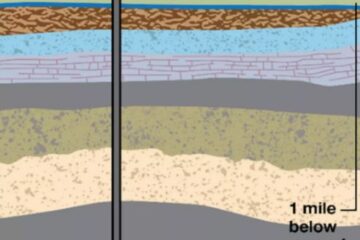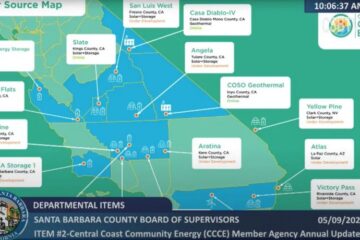Updating Bush’s spin on climate change
The White House is choosing the president’s past words carefully in its portrayal of him as a longtime ally in the fight against global warming.
Source of this article – Los Angeles Times, February 11, 2007
WASHINGTON — President Bush is widely considered one of the world’s most prominent skeptics of global warming. But to hear White House officials tell it, the world’s view of him is wrong.
In recent days, White House officials have made a special effort to argue that Bush has always been concerned about climate change. Moreover, they say, he has long acknowledged that human activity may be a significant factor.
“Perhaps folks have not taken notice of the fact that this is an administration that’s been keenly committed both to environmentalism and conservationism from the start,” White House spokesman Tony Snow said last week.
Indeed, the climate around global warming in Washington is getting hotter. Members of both parties are scrambling to get ahead of each other — and ahead of public demands — to take measures against the threat.
Apparently concerned that Bush was not perceived as being on the global warming bandwagon, White House officials released an unusual open letter Wednesday contending that “climate change has been a top priority since the president’s first year in office.”
“Beginning in June 2001, President Bush has consistently acknowledged climate change is occurring and humans are contributing to the problem,” said the letter, signed by John Marburger, director of the White House Office of Science and Technology Policy, and James Connaughton, chairman of the White House Council on Environmental Quality.
But the record isn’t quite so clear.
The letter cites a June 2001 speech by Bush, quoting him as saying that “we know the surface temperature of the Earth is warming…. There is a natural greenhouse effect that contributes to warming…. And the National Academy of Sciences indicates that the increase is due in large part to human activity.”
But the parts of the speech excised or ignored by the letter give a somewhat different impression. For instance, the citation deletes a sentence that asserts that “concentration of greenhouse gases, especially CO2, have increased substantially since the beginning of the Industrial Revolution” — a time frame suggesting that the contemporary world may have played only a small role.
Moreover, Bush’s mention of the National Academy of Sciences was quickly followed by a sentence that cast doubt on the notion of human contribution to climate change. “Yet the academy’s report tells us that we do not know how much effect natural fluctuations in climate may have had on warming,” Bush said at the time.
“We do not know how fast change will occur or even how some of our actions could impact it,” he added.
Critics see such discrepancies as evidence that the White House is trying to take positions on both sides of the debate. “The president is all over the map,” said Daniel Becker, a global warming expert with the Sierra Club, an environmental group.
The critics argue that Bush soft-pedaled the issue early in his presidency because of pressure from corporate interests, such as oil companies and operators of coal-fired power plants, that oppose regulation of greenhouse gas emissions. They note his frequent statements that technology is the answer to the problem.
“America is on the verge of technological breakthroughs that will enable us to live our lives less dependent on oil,” Bush said last month in his State of the Union address. “And these technologies will help us be better stewards of the environment, and they will help us to confront the serious challenge of global climate change.”
Last week’s release of a United Nations commission report proclaiming that global warming is incontrovertible has put additional pressure on Bush to appear responsive.
However, despite his pledge to devote new funds to research and to support efforts to curb the use of gasoline, critics remain unconvinced that Bush truly intends to confront longtime business allies.
Bush’s latest pronouncements suggest that he is no longer ignoring the problem, Becker said, but also that he is still not committed to acting.
Critics say that Bush has repeatedly pledged to take action on climate change, only to backtrack.
The pattern began, they say, in Saginaw, Mich., on Sept. 29, 2000, during Bush’s first presidential campaign. While calling for greater production of oil and natural gas, and more coal mining to reduce the reliance on foreign oil, he also said that “with the help of Congress, environmental groups and industry, we will require all power plants to meet clean-air standards in order to reduce emissions of sulfur dioxide, nitrogen oxide, mercury and carbon dioxide within a reasonable period of time.”
Six months later, as president, Bush stepped away from that pledge, saying he had decided not to regulate carbon dioxide emissions from power plants out of concern that doing so could increase already high energy prices.
But perhaps the defining moment came in June 2001, when he declared the Kyoto Protocol — the United Nations’ consensus document on climate change — “fatally flawed in fundamental ways” and announced that the United States was withdrawing from the pact. That is the speech his aides are now citing as evidence of his commitment to tackling the problem of global warming.
Kyoto “would have been economically ruinous and would have thrown a lot of people out of work,” Snow said last week. “The president instead has aggressively pursued ways of trying to clean the environment that don’t have to make people lose their jobs, and … at the same time, proceed on all the major areas where pollution is concerned.”
The Kyoto agreement, completed in 1997, proposed carbon dioxide emission caps for the 35 richest countries. President Clinton signed it but never submitted it to the Senate, where it would have faced certain defeat from lawmakers concerned about the protocol’s impact on the U.S. economy and irked that it did little to curb emissions from such large developing nations as China and India.
Bush in effect erased Clinton’s signature, removing the United States from any obligation to meet the pact’s emissions-reduction goals even without Senate ratification.
At the same time, Bush sought to blame global warming on “a natural greenhouse effect,” suggesting it wasn’t primarily caused by human activity. And, though acknowledging that limiting emissions was one way to stabilize concentrations of greenhouse gases, he immediately raised issues with such an approach, saying, “A growing population requires more energy to heat and cool our homes, more gas to drive our cars.”
Whether White House officials succeed in their campaign to paint the president as a leader in battling global warming may, at this point, make little difference. The energy on the issue has moved to Congress, where the Democrats — now the majority in both chambers — and prominent Republicans are pressing ahead with an agenda that may depend little on Bush.
“For years we have been frustrated by the lack of recognition, much less cooperation, on the part of the administration in addressing this issue,” said Sen. John McCain (R-Ariz.), a potential presidential candidate in 2008. “Hopefully, we have now turned the corner, in that there is finally recognition that the debate is over.”



0 Comments